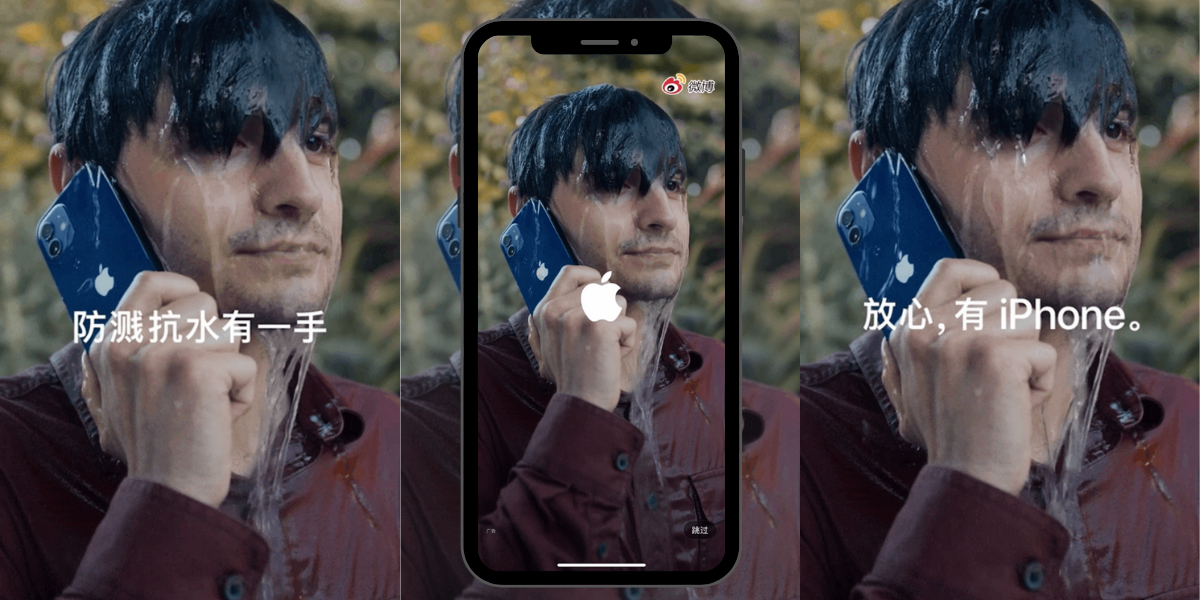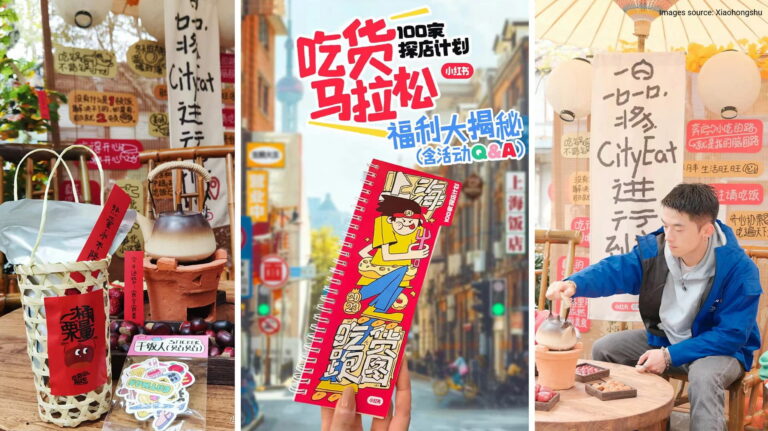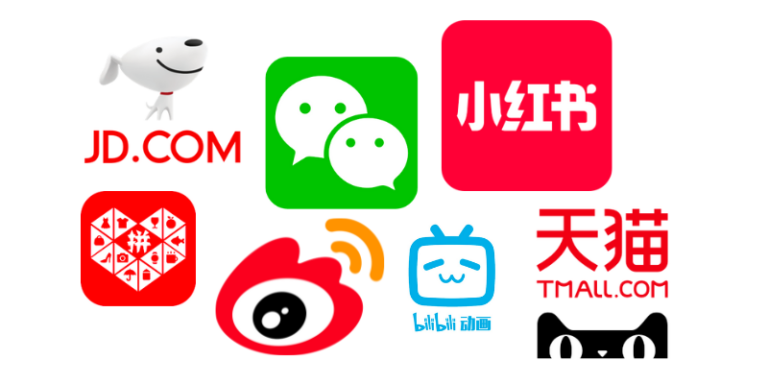At the start of July, Apple published a splash ad (one that appears on screen for a few seconds when an app is launched) on major social media platforms in China including Weibo, Bilibili.com, and 携程 Ctrip.com. The ad featured a man holding an iPhone to his ear in the drenching rain. and the short ad said, “防溅抗水有一手。放心,有iPhone。(More spill and splash resistant than ever. Relax, it’s iPhone.)” The ad’s English version was released in March on Apple’s Twitter account.
Although the ad was not received well globally, the Chinese audience, particularly, did not take this ad well.
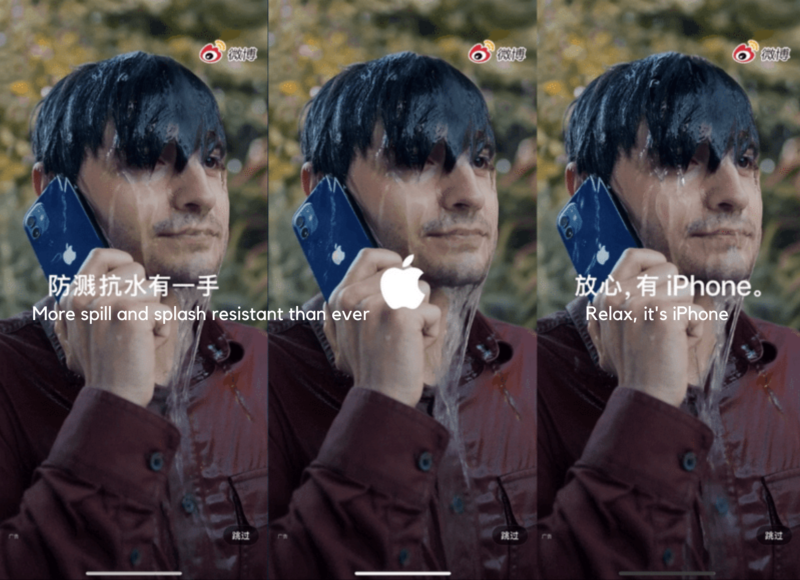
The Chinese audience disliked the ad because it was the opposite of what the Chinese target audience usually would expect from Apple, which would be the exemplar combination of simplicity and creativity. The ads from Apple had always been techy but not geeky, aesthetic but not dramatic, and genuine but not over-emotional. Some netizens commented that they would have to watch till the end to know it was an Apple ad, and they were shocked. They had guessed it to be some other lower-priced brands. A lot of people described the ad as “土 (corny)” and “off-brand”, and many recreated silly memes and parodies to join the banter. Nevertheless, if Apple’s purpose was widespread advertising, the brand succeeded as the ad garnered attention.
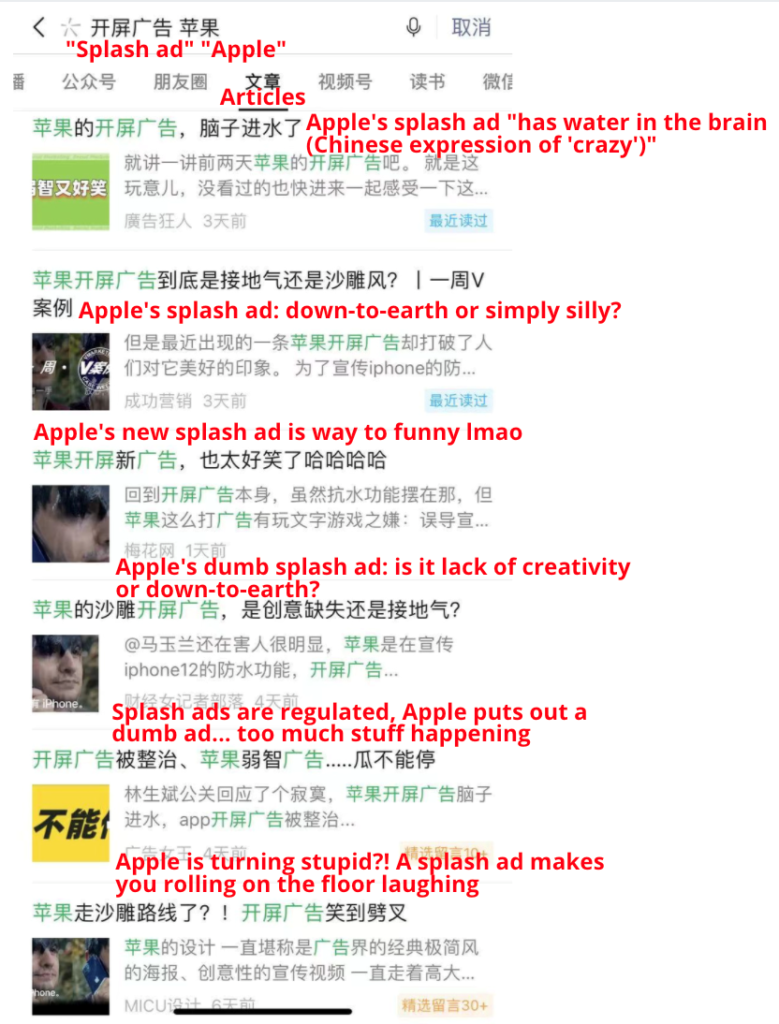
The most common comment online for this ad is “苹果脑子进水了.” The literal translation would be “Apple got water in its mind,” which is a Chinese expression for describing someone who has lost their mind. Netizens were surprised to see such a visual representation of this expression in an ad for the Chinese market. Although it is not uncommon for global companies to use the same ad for their international markets, businesses should test beforehand about how the Chinese market might react to a same visual content, especially when the local language and culture have slang or expressions related to elements in an ad. In this case, for instance, Chinese netizens reacted quickly and made the ad meme material.
However, there was one more criticism from the netizens. They questioned Apple for misleading consumers. Consumers pointed out that although the ad copy says iPhone withstands splashes of water, the ad’s visual presented pouring rain. Further, Apple said in its warranty policy that “water and other liquid damage to iPhone or iPod aren’t covered by warranty. Service for the liquid damage to an iPhone or iPod isn’t covered by the Apple One-Year Limited Warranty.” Weibo users and some WeChat KOLs humorously warned that this might be a scheme to tempt people to put their iPhones in water so they had to purchase new ones.
The good news is, the Apple ad did not bother the Chinese people for long time. On July 8th, the Ministry of Industry and Information Technology of the Chinese government (MIIT) drew guidelines on the overwhelming splash ads on the apps, the mainstream apps canceled splash ads and let the users log in to the interface directly without screen ads. Apps of Alibaba, including Alipay and Taobao, removed all splash ads first, then Tencent apps and Weibo followed up by July 12th.
Author: Zhiting (Vanessa) Sun


